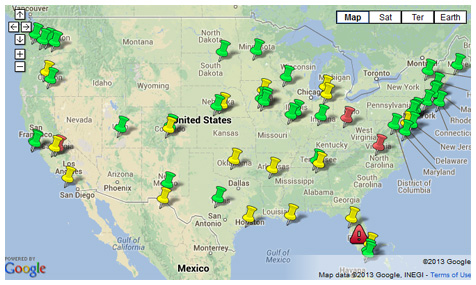 It has been three years since we began reporting about wage theft and worker misclassification here on Construction Citizen. In September 2010 Jim Kollaer reported that twenty-three states at that time had
It has been three years since we began reporting about wage theft and worker misclassification here on Construction Citizen. In September 2010 Jim Kollaer reported that twenty-three states at that time had
signed Wage Theft
and/or Worker Misclassification bills into law. That number has now grown to thirty and may continue to grow as local governments grow tired of waiting for Congress to pass legislation on these issues at a national level.
Back in 2010, there were two federal bills under consideration: The Fair Playing Field Act (SB 3786) and The Employee Misclassification Prevention Act (HR 5107). Neither of these ever made it out of committee. In 2011, another Employee Misclassification Prevention Act (HR 3178) was introduced by Representative Lynn Woolsey and 32 other cosponsors. Last year, Senate Bill 2145 and House of Representatives Bill 4123, each named the Fair Playing Field Act of 2012, were introduced by Senator John Kerry and Representative Jim McDermott and 42 other cosponsors in the House and Senate. Each of these proposed laws died in committee as well.
In the meantime, more and more state, county, and city governments are addressing wage theft and worker misclassification in order to protect their local economies, responsible business owners, and workers.
You may find interesting an interactive online map with information about wage theft and misclassification bills and ordinances at the state, county, and city levels. Wagetheft.org has populated a Google Map with “pins” which mark places that have either already passed a bill or ordinance, have a campaign currently in progress, or where such legislation did not pass. Clicking on these color-coded markers (where green represents a bill which passed and so on) brings up a description of what that particular local government proposed, with links to more information about each. You can zoom in and out of the entire map or open it up in its own larger window.
Until (and unless) the United States Congress can agree upon solutions for these problems, we can expect to see more and more local governments doing what they can to protect their constituents – and more pins on that map!
Wage Theft Legislation Update
by Elizabeth McPherson | August 23, 2013



Add new comment